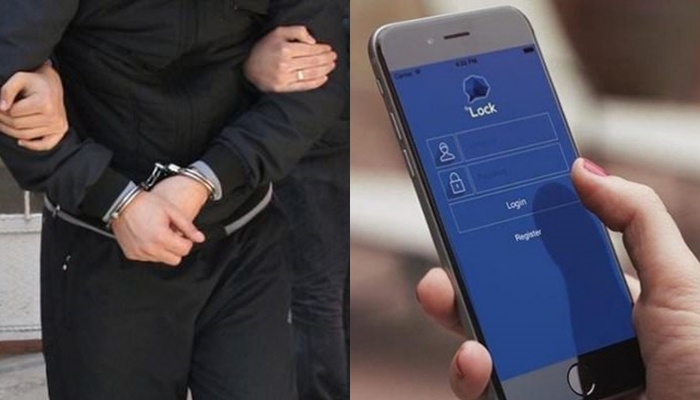Detention warrants were issued for 33 people in İzmir province on Monday on accusations that they use a smart phone application known as ByLock, the state-run Anadolu news agency reported.
According to the report, police detained 31 of 33 suspects as part of an investigation by the İzmir Public Prosecutor’s Office into the Gülen movement, accused by the Turkish government of mounting a coup attempt last year.
In a similar development on Sunday, detention warrants were issued for 43 former and active duty members of the Turkish Armed Forces (TSK) and 19 people in İstanbul, Ankara and Şanlıurfa provinces on charges of using ByLock.
Tens of thousands of people, including civil servants, police officers, soldiers, businessmen and homemakers, have either been dismissed or arrested for using ByLock since a failed coup attempt on July 15, 2016.
A recent legal opinion published in London found that tens of thousands of Turkish citizens detained or dismissed from their jobs on the basis of downloading ByLock have had their human rights violated.
According to a report in The Guardian, a study commissioned by opponents of Turkish President Recep Tayyip Erdogan and conducted by a pair of 2 Bedford Row attorneys argues that the arrest of 75,000 suspects primarily because they downloaded the ByLock app is arbitrary and illegal.
According to the report by Guardian legal affairs correspondent Owen Bowcott, the legal opinion was commissioned by a pro-Gülen organization based in Europe. The two experienced British barristers, William Clegg QC and Simon Baker, drafted the opinion.
“The evidence that the [ByLock] app was used exclusively by those who were members or supporters of the Gülen movement [is] utterly unconvincing and unsupported by any evidence,” the two barristers said, according to the Guardian.
“There is a great deal of evidence … which demonstrates that the app was widely available and used in many different countries, some of which had no links to Turkey.”
The detention of people on this basis is “arbitrary and in breach of article 5” of the European Convention on Human Rights (ECHR), which guarantees the right to liberty, the report says.
The report examines transcripts of recent trials of Gülen followers in Turkey as well as Turkish intelligence reports on ByLock. It concludes that the cases presented so far violate the ECHR, to which Turkey is a party.
In a similar development, Dutch cyber security firm Fox-IT, known for providing cyber security solutions to governments, said on Sept. 13 that it had debunked a report by Turkey’s MİT on the ByLock, as it discovered inconsistencies and manipulations.
In a statement on its website, Fox-IT said the quality of the MİT report on ByLock is very low, especially when weighed against the legal consequences of the report, which is the basis of detention for 75,000 Turkish citizens, mainly sympathizers of the Gülen movement.
Releasing a report titled “Expert Witness Report on ByLock Investigation,” Fox-IT said the MİT investigation is fundamentally flawed due to its contradictory and baseless findings, lack of objectivity and lack of transparency.
The investigation conducted by Fox-IT contradicts the key findings of MİT and also discovered inconsistencies in the MİT report that indicated manipulation of results and/or screenshots by MİT.
Underlining that MİT’s findings that ByLock is used by Gülen movement followers are not sound, Fox-IT said the MIT report does not adhere to forensic principles and should therefore not be regarded as a forensic investigation.

